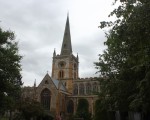
In today’s Claire Chats, I share with you some information on Holy Trinity Church, where Shakespeare was baptised and buried, along with photos Tim took on our recent visit.
[Read More...]
In today’s Claire Chats, I share with you some information on Holy Trinity Church, where Shakespeare was baptised and buried, along with photos Tim took on our recent visit.
[Read More...]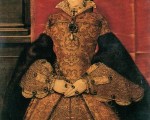
The following letter was written by Princess Mary, the future Mary I, to her brother Edward VI on 19th August 1551. Henry Ellis, editor of “Original Letters, Illustrative of English History…” explains:
“The following Letter from the Princess Mary to her brother, is preserved upon the Books of the Privy Council. It is probably the best specimen which we have in our power to give of her talent at writing: and, with the singular Paper which follows it by way of comment, will show her to have been a woman of more intellect than the world has usually supposed. Queen Catherine Parr took great pains in the education both of Mary and Elizabeth.
[Read More...]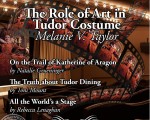
Lights, Camera, Action… September is “movie month” for the Tudor Life magazine. We’ve gone crazy with everything film related – but of course it is all in relation to the real history of the times!
[Read More...]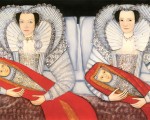
Childbirth is openly discussed in today’s society. Images of pregnant women appear in magazines and women giving birth can be seen on television and in movies. Yet during the medieval period, childbirth was deemed a private affair. Giving birth in the middle ages was a dangerous time for women and childbirth did not discriminate. Young mothers, older mothers, poor or rich mothers, all could die not only in childbirth but also due to complications afterwards. Sadly, more than one in three women died during their child-bearing years.
[Read More...]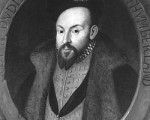
On 27th August 1549, the Battle of Dussindale took place, ending Kett’s Rebellion in Norfolk.
[Read More...]
Historian Gareth Russell is the editor of our monthly Tudor Life magazine and he’s been working hard on scheduling expert articles and also expert talks for the next few months. We are thrilled to bits that so many historians and authors want to be involved in the Tudor Society by offering their knowledge and expertise to our members – a big thank you to them and to all our members too for your continued support.
Contributors to Tudor Life magazine in the coming months include:
[Read More...]
Just a reminder that Susan Higginbotham’s live chat is taking place on the Tudor Society chatroom this Friday (28th August) at 9pm US Eastern time.
[Read More...]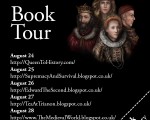
Just to let you know that author and Tudor Life magazine editor Gareth Russell has embarked on a week long book/blog tour for his non-fiction history book A History of the English Monarchy: From Boadicea to Elizabeth I. He will be stopping here at the Tudor Society on 30th August but do catch him at his other stops too to enter the giveaways for a copy of his book.
[Read More...]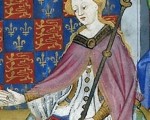
Marguerite d’Anjou, more commonly known as Margaret of Anjou and wife to Henry VI of England, was born to René, Duke of Anjou, and Isabella, daughter of the Duke of Lorraine, in Pont-à-Mousson, France on 23 March 1429. Pont-à-Mousson lies in modern north-eastern France, close to the countries of Luxembourg and Lichtenstein. The Moselle river flows through Pont-à-Mousson and the skyline boasts the impressive Norbertine abbey, which was built in 1121. Young Marguerite spent her early years in the castle of Capua in Naples, Italy, where her father was titular king, and in the castle of Tarascon on the Rhône River. Marguerite was tutored by her well-educated mother and may have received some lessons from Antoine de la Salle, who tutored Marguerite’s brothers.
[Read More...]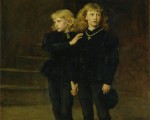
Philippa Langley, who, of course, spear-headed the Looking for Richard project, has announced that she is going to investigate the disappearance of the Princes in the Tower by teaming up with cold case experts.
[Read More...]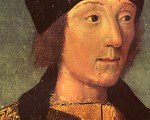
As yesterday was the anniversary of the Battle of Bosworth, why not test your knowledge of this historic battle.
[Read More...]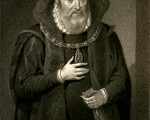
On 23rd August 1548, Francis Talbot, 5th Earl of Shrewsbury, arrived at the Siege of Haddington, in East Lothian, Scotland, with a large army.
The siege was actually part of a series of sieges at Haddington, which were all part of the Anglo-Scottish war known as the War of the Rough Wooing, so named because it was had been started in 1543 by Henry VIII in a bid to secure a marriage agreement between England and Scotland, between Prince Edward and Mary, Queen of Scots.
[Read More...]
Here is the transcript from the live chat with Livi Michael. We had an amazing discussion about many things to do with Livi’s talk, and thank you so much to all those who attended – it was great fun!
[Read More...]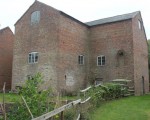
In today’s Claire Chats I talk about my recent visit to Charlecote Mill in Warwickshire.
[Read More...]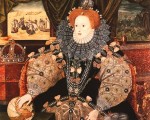
On 20th August 1588 a thanksgiving service was held at St Paul’s in London to give thanks to God for England’s victory over the Spanish Armada. The Armada had been defeated, obliterated in fact, yet the English fleet was left intact and only around 100 English men were lost in the skirmishes.
[Read More...]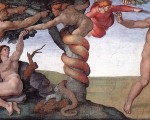
While in today’s modern times many people are more open with their knowledge and acceptance of sexual intercourse, during the Tudor period things were very different.
The church played a major role in sex and the duties of the female body. The Virgin Mary and Eve, the mother of mankind, helped to develop people’s views of sexual intercourse, birth and the formation and function of the female body. Messages were conveyed not only through sermons but also through images and paintings. The act of intercourse, was tainted by the fall of Eve. Women were seen as inferior versions of men and were thought to be greatly susceptible to the devil and the dark forces. The Church taught that women’s bodies ran hot and thus they always desired sex and acts of fornication. Thus marriage and sex within marriage was the only way to control a woman’s desires. Sex was strictly confined to marriage and only for the purpose of reproduction.
[Read More...]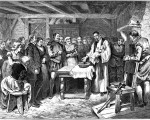
On this day in history, 18th August 1587, the first European Christian was born in the New World. Virginia Dare was the daughter of Ananias Dare and his wife, Eleanor, daughter of Governor John White. She was born in the Roanoke colony, in what is now North Carolina, just days after the arrival of the colonists on Roanoke Island. Virginia was baptised the following Sunday.
[Read More...]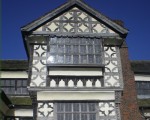
To celebrate the Tudor Society’s 1st birthday and the publication of our Tudor Society guide to Tudor Places of Great Britain in the autumn, and as a thank you to our members, we’ll be giving away two gifts to members…
[Read More...]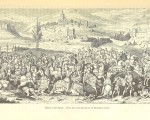
On 16th August 1513, a battle which became known as “the Battle of Spurs” or the Battle of Guinegate, took place at Guinegate (Enguinegatte) in France. It was a battle between the English, backed by Imperial troops, and the French and is called “the Battle of the Spurs” because the French knights, taken by surprise and realising that they were outnumbered and outmanoeuvred, fled on horseback, their spurs glinting in the sunlight.
[Read More...]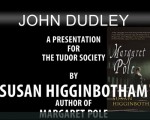
In our second expert video of the month, we have Susan Higginbotham. Susan discusses John Dudley and analyses whether all that was said about him is true.
[Read More...]
This month’s expert speaker, Livi Michael, author of Succession and Rebellion, Wars of the Roses novels, will be joining us live in the chatroom on Tuesday 18th August…
[Read More...]
Don’t worry if you missed Amy Licence talking about breast-feeding and wet nursing through history on Woman’s Hour on BBC Radio 4 today…
[Read More...]
Today, instead of a Claire Chats video we have a “Tim Chats” video. While Tim and I were on holiday with our children in the UK we caught up with our godson Ben Crossley who is an actor and who has been studying acting and stage combat. We persuaded him to share some of his ‘moves’ and knowledge…
[Read More...]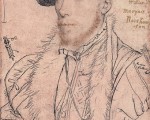
William Parr, Marquis of Northampton and brother of Queen Catherine Parr, was born on 14th August 1513. He was the son of Sir Thomas Parr of Kendal and his wife, Maud (née Green).
[Read More...]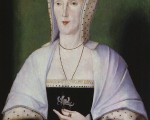
Margaret Pole, or Margaret Plantagenet, was the daughter of George, Duke of Clarence – brother of two Plantagenet kings: Edward IV and Richard III – and his wife Lady Isabella Neville, daughter of Richard Neville, 16th Earl of Warwick and a man known as ‘the Kingmaker’. Margaret was born on 14th August 1473 and she married Sir Richard Pole in 1491, having five children before she was widowed in 1505. One of her children was Reginald Pole who became a cardinal and then Archbishop of Canterbury during the reign of Mary I.
[Read More...]